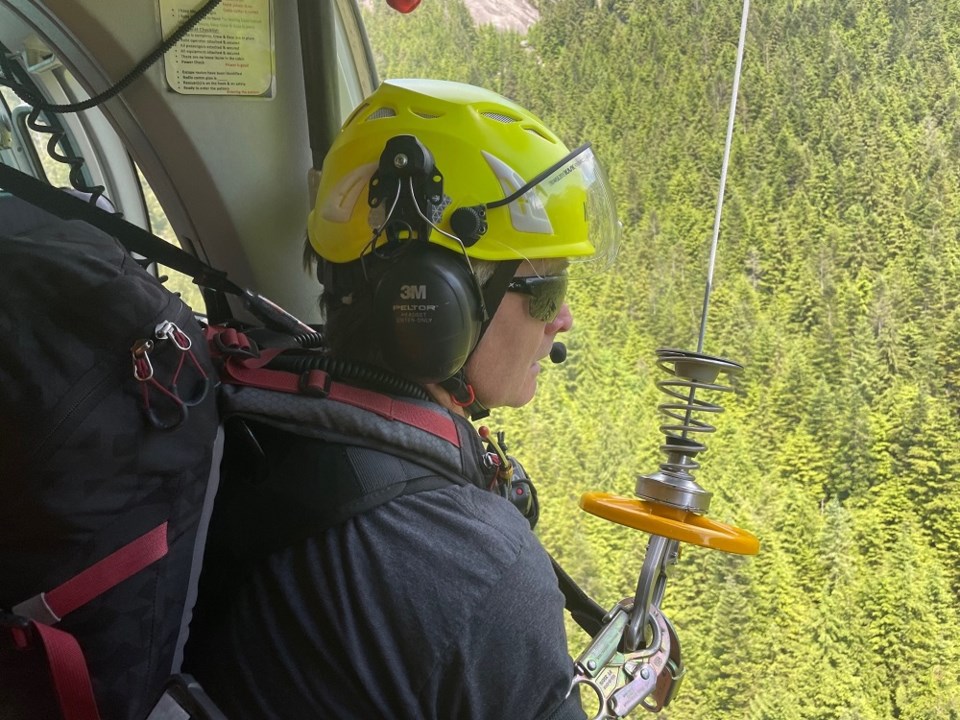Coquitlam Search and Rescue (SAR) was able to use a new piece of equipment for the very first time to rescue an injured hiker near Widgeon Falls.
A woman was taken to hospital after sustaining a serious lower limb injury after falling on a wet, slippery slope at the site — located nearly 20 km northeast of downtown Coquitlam — at around noon on Saturday (July 2).
In a social media post, Coquitlam SAR explained its team used a helicopter hoist to bring the hiker to safety as the spot where the victim was found was deemed impossible to access.
As a result, local volunteers had to be lowered by a cable to the victim, "were winched" into the location and hoisted the hiker up by way of three rescue techs in a Talon Helicopter AS365N2 Dauphin.
"Once on scene, it was evident she had a severe knee injury, sustained after a fall at that site," a Coquitlam SAR statement reads about the "landmark" event, noting the hiker had fallen down after losing her footing on some slippery rocks.
"The subject's knee was immobilized with a vacuum splint, she was winched into the helicopter, and flown to rendezvous with BC Ambulance."
This was the fifth helicopter rescue of the year for Coquitlam SAR out of 25 calls its responded to thus far.
Manager Al Hurley tells the Tri-City News the half-century organization has had a special helicopter rescue team for 10 years, but it's been using a fixed line to bring people to safety.
He says the hoist mechanism was only added to the fold last month.
"This rescue tool training has been advocated for well over a year and we got approval to proceed earlier this year," Hurley explains.
"We get more than a dozen calls on average for helicopter rescue, so it will depend on the terrain, time of day and how remote the rescue site is."
Hurley says it took more than an hour to find the injured hiker as the steep-terrain area she was found was surrounded by a heavy tree canopy.
Despite spotty cell coverage, volunteers were finally able to find the woman after pinging her phone to the location.
Residents and visitors wishing to hike to Widgeon Falls this summer are encouraged to be prepared and have a trip plan as calling for help in the event of an emergency may not be possible.
"[...] because cell service is so spotty, carry an emergency beacon," says Hurley.
"The group was well prepared to stay overnight, but the call for rescue without cell service would require a three-hour walk down to an area to get reception."
For more information on trip planning, especially for hiking, you're encouraged to visit Coquitlam SAR's website.





